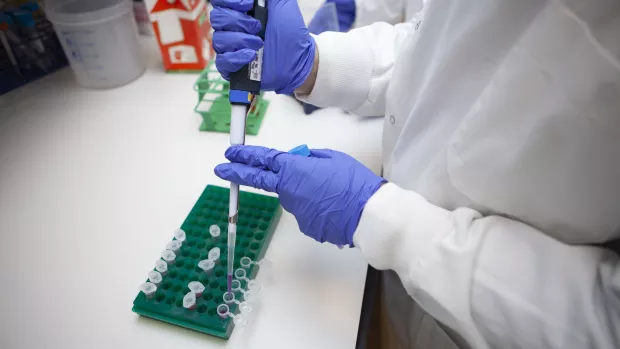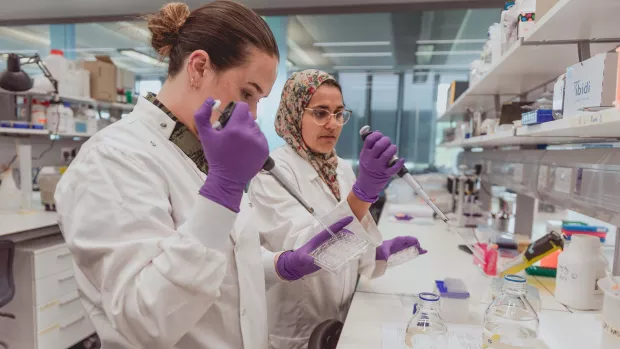
Bexarotene
Bexarotene is used to treat skin cancer. It was also tested as a treatment for MS in a Phase 2 clinical trial.
The results of this trial showed bexarotene could repair myelin in humans. But trial participants experienced some serious side effects so bexarotene will not be taken forward into a Phase 3 study.
How bexarotene works: bexarotene was being tested as a drug to repair myelin, the protective coating around nerves that is damaged in MS.
Previous research in the lab found drugs that target a specific location in the brain (called retinoid X receptors) can encourage oligodendrocytes to produce myelin.
Bexarotene binds to retinoid X receptors on oligodendrocytes (myelin-making cells), so researchers wanted to know if it can boost myelin in the brain.
About bexarotene
Daily tablet
The CCMR One trial
This Phase 2a trial involved 50 people with relapsing MS.
Results from the trial were published in August 2021. These results showed that bexarotene was able to boost myelin repair in people with MS.
However, bexarotene was very poorly tolerated by participants in the trial. 15% of trial participants chose not to continue with the trial due to the side effects, and 30% of participants were given a reduction in the dose. All participants experienced hypothyroidism (an underactive thyroid gland) and 90% of participants experienced high levels of triglycerides.
Due to the serious side effects that participants in the Phase 2 trial experienced, bexarotene will not be taken forward into any further trials.



